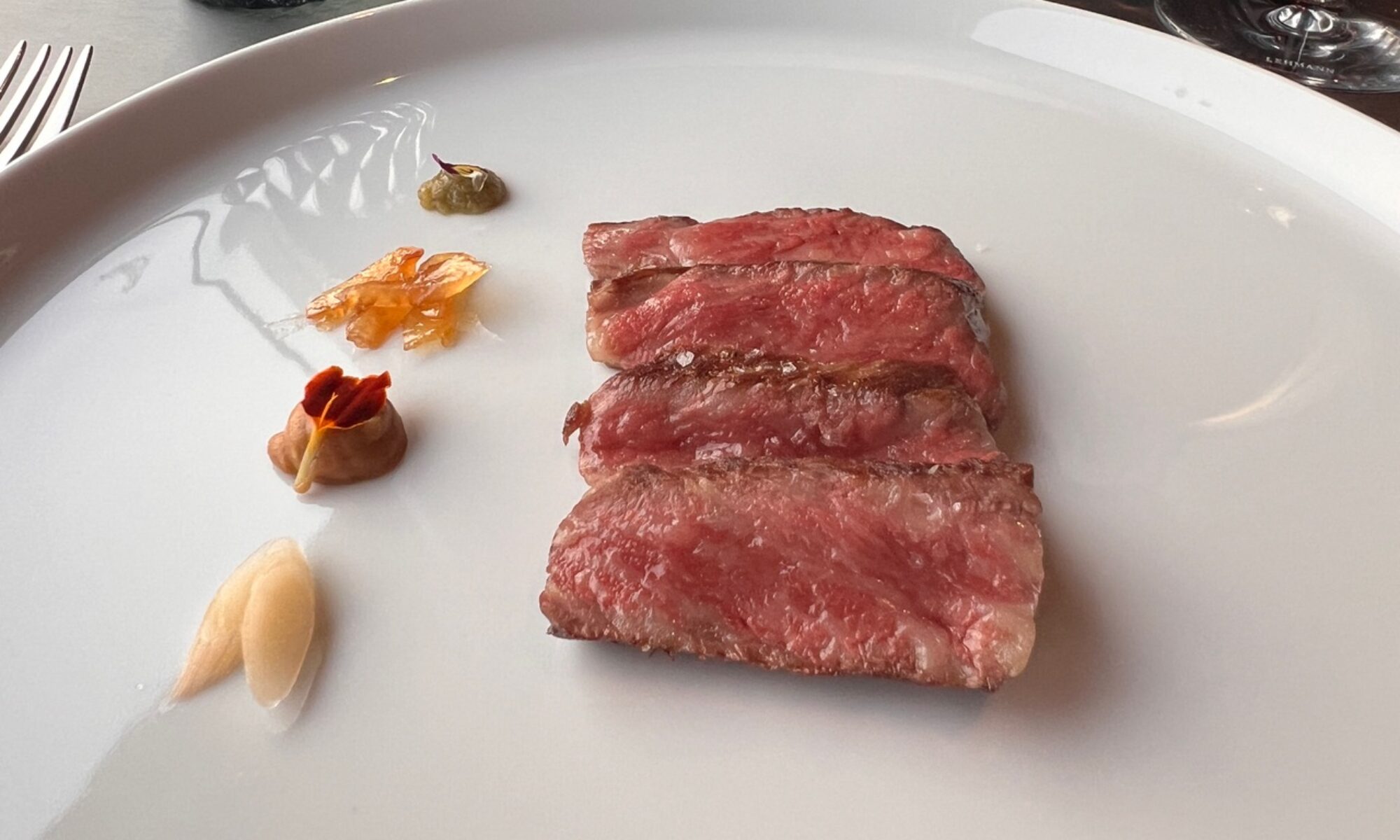Das Manifest des Ferran Adriá
(db)Wie verschiedene spanische Medien melden, hat der katalanische Koch-
Avangardist Ferran Adriá (El Bullí) einen Auftritt auf der Gourmet-
Messe Madrid Fusión in der letzten Woche genutzt, um eine neue Zeit
in der Welt der Gourmet-Küche auszurufen. In Anwesenheit diverser
internationaler Star-Köche wie Heston Blumenthal (UK), Wylie Dufresne
oder Thomas Keller (beide USA) hat Adriá in einem dramatischen
Auftritt zur Eröffnung der hochkarärtig besetzten Gourmet-Messe in
der spanischen Hauptstadt seine Vorstellungen in einem Manifest
vorgetragen.
Zu Beginn seines Vortrags würdigte Adriá zunächst noch ausdrücklich
die Meister der Nouvelle Cuisine, um dann eine neue Zeit auszurufen.
„Ich verneige mich vor den Meistern,“ sagte er, aber „in den letzten
Jahren haben wir uns erneuert, haben wir viele Veränderungen
vorgenommen.“ Dann trug er unter dem Titel „Die Philosophie des El
Bulli“ seine 23 „Gebote“ einer neuen Küche vor und forderte die
Formierung einer neuen Generation von Köchen.
Zunächst verbat sich Adriá die Bezeichnung „molekular“ für seine Art
der Zubereitungen und erinnerte daran, dass letztendlich die
Zufriedenheit des Gastes das entscheidende Kriterium sei. Seine
Kritiker bezeichnete er als Traditionalisten, die allerdings
vergessen hätten, dass die Kochkunst sich ständig verändere und schon
immer innovativ gewesen sei wie z.B. bei der Einführung der Kartoffel
aus Amerika.
„Die Kochkunst ist eine Sprache, in der Harmonie, Kreativität, Glück,
Schönheit, Poesie, Komplexität, Magie, Humor und Provokation Ausdruck
findet.“ So sein erstes Postulat des bis dato noch nicht im Internet
zugänglichen Manifestes.
Im weiteren Verlauf proklamierte Adriá weitere Prinzipien seiner
Kochkunst:
– Maximale Qualität der Produkte
– Anwendung von Techniken, die die Veränderung der reinen und
ursprünglichen Aromen vermeiden
– Stimulierung aller Sinne
– Überwindung der Grenzen zwischen süß und salzig
– Die Ausnutzung neuer Formen der Präsentation von Speisen
– Die Herstellung von Verbindungen zur Welt der Kunst
– Das Entwerfen von Rezepten, bei denen die Harmonie in kleinen
Portionen funktioniert
– Der Versuch, eine leichte Küche mit Meeresprodukten und Gemüsen zu
erfinden.
Außerdem forderte er die Abschaffung des Menüs auf den Speisekarten,
um stattdessen jedes gastronomische Produkt einzeln und unverfälscht
anzubieten. Ablehnend äußerte sich Adriá gegenüber dem Konzept, dass
bestimmte Produkte nur auf Grund ihres ökonomischen Wertes bevorzugt
Verwendung finden. Vielmehr müsse die Qualität und der Geschmack im
Vordergrund stehen. Alle Produkte seien gleichberechtigt: „Kaviar ist
gut, aber eine Sardine hat auch Eier.“
Zuletzt kündigte Adriá für den Februar ein neues Buch an: El Léxico
científico gastronómico (Das Wissenschaftliche Lexikon der
Gastronomie) und präsentierte diverse neue Küchengeräte wie z.B.
einen umgebauten Bohrschrauber, um Karamelfäden herzustellen. Dirk Baranek
Die 23. Punkte seines Manifestes (auf Englisch):
1. Cooking is a language through which one can express harmony, creativity, happiness, beauty, poetry, complexity, magic, humour, provocation.
2. One may assume that only top-quality products will be used and that the techniques used to prepare dishes will be well-mastered.
3. All products have the same gastronomic worth, regardless of price.
4. We prefer to cook with vegetables and seafood. Dairy also predominates, as well as dried fruits and other products that amount to a light cuisine. We rarely cook large cuts of red meat or whole birds.
5. Even if the characteristics of products are changed (temperature, texture, shape, etc.), the goal is to preserve its original flavour, except when slow-cooking or when searching for the matrix resulting from reactions such as Maillard’s.
6. Cooking methods, both classical and modern, are a heritage that the cook must utilize to the maximum extent.
7. As happened throughout the past in other fields of human knowledge, new technologies support the progress of gastronomy.
8. The family of fonds is expanding, and alongside the classic ones we use lighter broths (flavoured waters, consimmés, clarified vegetable juices, milks of dried fruits or nuts) in similar ways.
9. The information that is on a plate is enjoyed through all senses, and also through reflexion.
10. The stimuli of the senses are not only taste-related: we can also play with the senses of touch (contrast of temperatures and textures), smell, sight (colours, shapes, illusionisms, etc), so that the senses become one of our points of reference when we create dishes.
11. The techno-conceptual search is one of the cornerstones of the creative pyramid.
12. We create as a team.
13. The boundary separating savoury and sweet is blurred. There’s a rise in the importance of savoury ice creams and cold food in general.
14. The classical structure of dishes is being ruptured. There is a revolution in the appetizers and desserts, in the sense that they have become symbiotic, while the appetizer – main course – dessert hierarchy is broken.
15. A new way of presenting food is gaining strength.
16. A chef’s cooking style is linked to his feelings towards his surroundings.
17. The products and preparations from other countries are submitted to our cuisine’s own criteria.
18. There are two main ways to reach harmony between products and flavours: through memory (deconstructing, links to the autonomous cook, adaptation, previous modern recipes), or through new combinations.
19. Our food is connected to the world and the language of the arts.
20. Recipes are conceived to be served in small portions.
21. Taking a dish out of context, or using irony, performance or spectacle is perfectly acceptable, as long as this is not done in a superficial way, and so that there is a link with gastronomic reflexion.
22. The tasting menu is how we express our avant-garde cuisine. Its structure is alive, and is subject to change. We are betting on concepts such as snacks, tapas, morphings, etc.
23. The knowledge and/or the collaboration with experts from different fields (gastronomic culture, history, industrial design, science) is primordial in our evolution.

